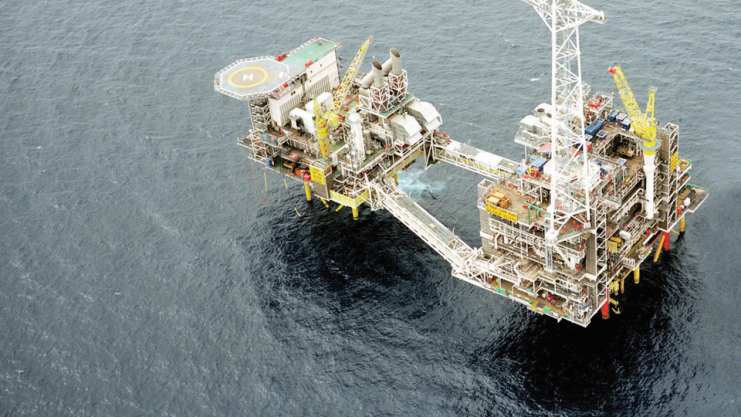BP pushes forward with North Sea oil and gas project

BP has submitted its environmental statement for the Murlach project to the energy regulator, as it pushes ahead with plans to develop the North Sea oil and gas field.
If approved, the project is expected to recover 25.9m barrels of oil and 602m cubic metres of gas, which will be sent to BP’s Eastern Trough Area Project (ETAP).
The site is a redevelopment of the Skua field, which was in production in the early 2000s, then operated by rival firm Shell.
The energy giant hopes the subsea facility installation and drilling operations could begin 2024, with first oil in 2025.
The submission of the environmental statement to the Offshore Petroleum Regulator for Environment and Decommissioning (OPRED) will allow a public consultation to now begin on the project.
The new project is estimated to have a production life of 11 years, with peak production in the region of 20,000 barrels of oil per day and around 17m cubic feet of associated gas per day.
When approached for comment by City A.M., BP said: “Without pre-empting the outcome of this process, BP believes this development supports our strategy to produce hydrocarbons at a lower cost and with lower operational emissions through the use of existing infrastructure, in this case the bp-operated ETAP hub in the central North Sea.”
“Value generated from continued North Sea oil and gas production supports bp’s ambitious energy transition growth plans in the UK, which include offshore wind, hydrogen production, CCUS and electric vehicle charging infrastructure.”
It also confirmed its commitment to spend £2 for every £1 the energy giant makes in the UK.
North Sea projects have enjoyed a revival in interest recently, with Shell reconsidering its decision to exit the Cambo oil field.
The government has also outlined its support for North Sea oil and gas exploration in its recently released energy security strategy, and also held meetings with industry leaders in Downing Street last month.
Prime Minister Boris Johnsons considers ramping up domestic energy production, including exploiting North Sea oil and gas supplies, as crucial to its bid to help wean the country off Russian energy supplies.
BP has also faced pressure, alongside Shell, from the Labour Party – after it paid out billions in dividends to its shareholders.
The opposition has called for a one-off £1.2bn windfall tax, paid for through a hike in corporation tax, to ease the cost of living crisis.
OEUK chief executive Deirdre Michie said: “With the current geopolitical climate, it’s more crucial than ever that we as a nation continue to maximise our domestic supply as a matter of national security.”
“Today oil and gas meets 75 per cent of the UK’s total energy needs. Many oil and gas companies are already investing in the cleaner energies of the future but while that demand is there, it makes sense to produce as much of our own needs as we can, and as cleanly as we can.”
“Last year the UK had to import 62 per cent of its gas, and this figure could reach 80 per cent by 2030. Therefore, fields like Murlach remain vitally important in protecting the UK’s future energy security whilst meeting our climate targets.”